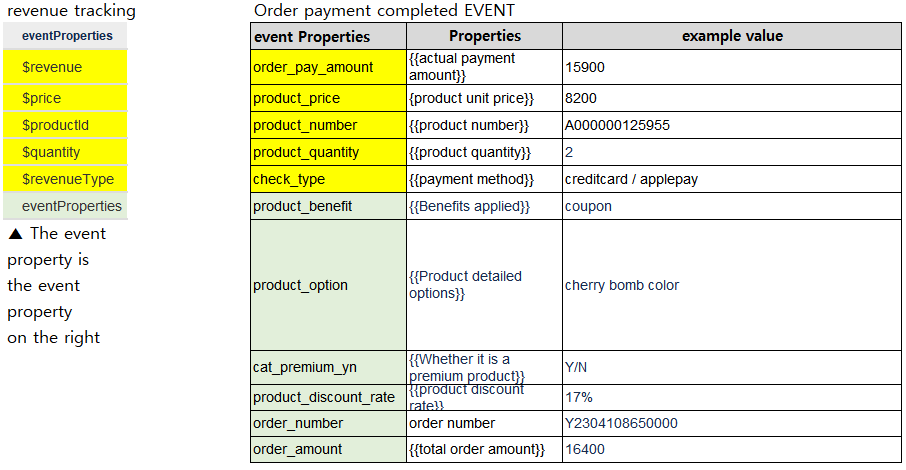Hi @heejin jung .
When I was implementing revenue tracking, I was informed by Amplitude solution consultants that the revenue properties can be passed with your order confirmation event, i.e., just pass the “track” call for the order, no need to separately pass a “revenue” call.
In our case I use GTM, so I use the Amplitude Analytics Browser SDK tag template. In that I set a “track” call for a confirmation (holiday bookings in our world), coupling that with a variety of event properties about the purchase….in your case these would be your variables such as order_number, order_pay_amount, etc. Importantly, for the revenue I pass this with a $price event property (which would be the amount from your order_amount value) and also set $quantity to 1 (1 reflects the order being transacted, not the quantity of items within it).
For product-level data points (things like product_benefit, product_option, etc from your example), if you structure these as an object array, you can simply pass the whole array as an event property in your order confirmation event (in our case I pass products as a variable in the event properties). Within our product arrays I pass price and quantity, both specific to a given product and the volume being purchased; this means you then have capability to analyse things at both the product level and overall order level. You can find more info on these object arrays here: https://help.amplitude.com/hc/en-us/articles/9623000954907-Cart-analysis-Use-object-arrays-to-drive-behavioral-insights.
Hope this helps!
Thanks @dangrainger !!! 👏 And welcome @heejin jung, great question!
If the properties from the "order payment completion" event cover all the data needed for tracking revenue (like order amount, payment status, etc.), you likely don't need to develop a separate revenue tracking feature. You can use the event properties directly for calculating metrics like ARPPU and avoid redundancy. Just ensure the event provides all necessary details for accurate tracking. You can check the Wix API documentation for more details on how these properties work.
If the properties from the "order payment completion" event cover all the data needed for tracking revenue (like order amount, payment status, etc.), you likely don't need to develop a separate revenue tracking feature. You can use the event properties directly for calculating metrics like ARPPU and avoid redundancy. Just ensure the event provides all necessary details for accurate tracking. You can check the Wix API documentation for more details on how these properties work.
Usually, you'd track revenue-related events separately from general user actions to keep reporting clear. "Revenue" tracking in Amplitude typically involves specific revenue events, while your "order completed" or similar events might be tracked separately. If they're overlapping or inconsistent, check how your revenue properties are assigned.




